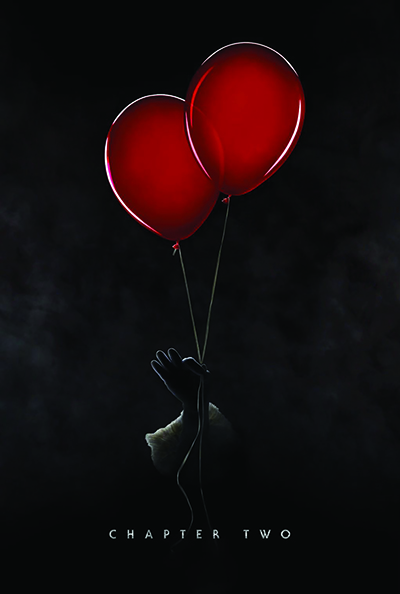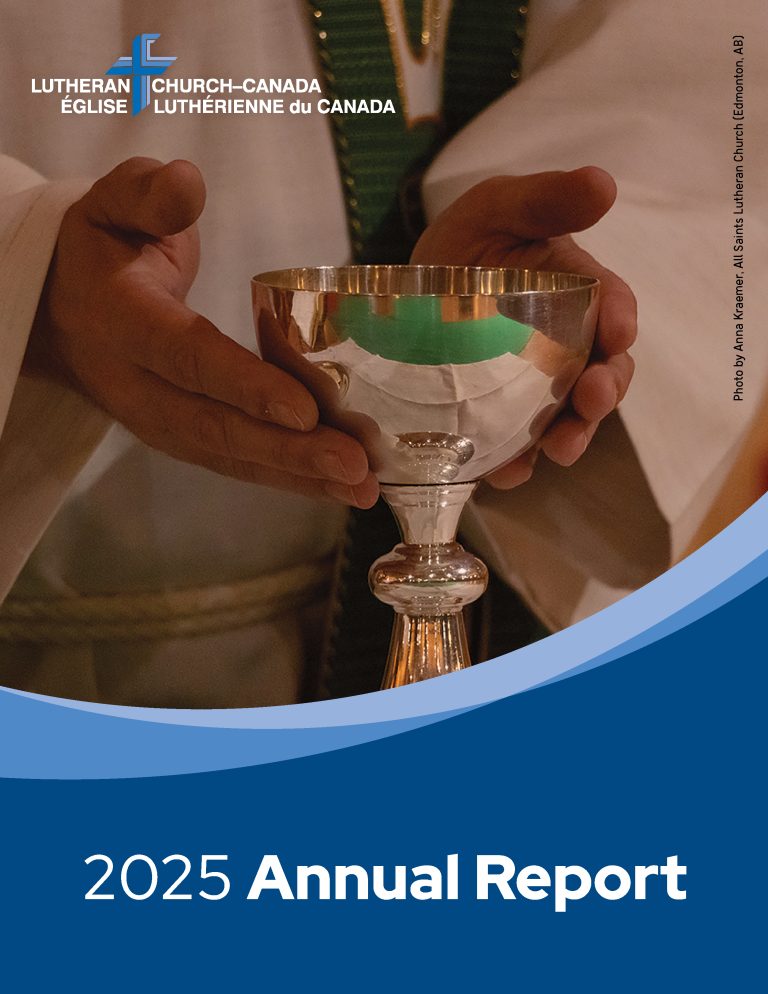Hair-raising horror: It Chapter Two
by Ted Giese

It Chapter Two continues the story of 2017’s It, based on the 1986 Stephen King novel. In the sequel, a group of adults—Beverly Marsh, Bill Denbrough, Richie Tozier, Mike Hanlon, Ben Hanscom, Eddie Kaspbrak, Stanley Uris—band together to keep a promise and return to the small town of Derry, Maine. There they revisit their adolescent fears and traumas while fighting to defeat an evil entity exploiting and feeding on people’s fears.
The previous film focused on these seven characters as young teens, when they formed a group nicknamed The Losers’ Club. While becoming friends, they individually and collectively fight their deepest fears and come to grips with a rash of child abductions—abductions which they discover have been orchestrated by Pennywise the Dancing Clown, a mysterious otherworldly entity who they learn has terrorized the town of Derry every 27 years for centuries. After defeating the murderous Clown in his lair, the kids make a blood pact vowing to return and finish the job if Pennywise should ever return—which he does, right on schedule.
King’s book jumps back and forth between the adult and adolescence timelines. In It Chapter Two, director Andy Muschietti makes use of the same formula, including footage of the young cast weaved into the adult storyline. On one hand, this makes sense as the adult story is less about coming of age, discovery, and mystery and much more about memory and facing the past. On the other hand, while the choice to focus exclusively on the younger characters in 2017’s It was the strength of that film, here in It Chapter Two it comes across as Muschietti leaning heavily on the success of the first film. Had Muschietti managed to weave elements of the adult story into the first film, the two films may have ended up more balanced when considered as a whole. The emotional impact and charming nature of the first film, as well as the careful character development of the adolescent characters, is not matched by the story of their adult counterparts.
Adaptation is a challenging endeavour and Muschietti took on an ambitious project when tackling King’s novel It. Overall, he succeeds. However, there are stretches of this new film where some of the dialogue is overwritten, and more on par with the 1990 It television miniseries. And because the film is juggling so much material, Muschietti at times misses diving deep into his subject matter. It Chapter Two stays in the shallow end of its source material unlike the first film which confidently swims the length of King’s grey-water-clown-infested-pool-of-fear. That said, the performance of Bill Skarsgård as wall-eyed Pennywise is consistent and perhaps even improved upon in It Chapter Two as more is revealed about the evil entity from beyond.
Next to Skarsgård, the standout performance in the film goes to comedian Bill Hader as the adult ‘trash mouth’ Richie Tozier who really does turn in a good dramatic performance with strong comedic elements. A lot of the buzz around this performance will likely be due to a LGBTQ twist on his character which is not present in King’s book. So while other kids in The Losers’ Club are dealing with grief and loss, stammers, abusive parents, fat-shaming, teasing and racism, Tozier seemed lumped in with them because he had a big mouth that was always getting him in trouble. This twist on the character gives him an additional reason to be an outsider. Interestingly this twist was not added into 2017’s It and frankly feels shoehorned into Chapter Two.
Suicide
Christian viewers will also want to take note of some of the other details floating around in the film. Viewers familiar with King’s book may remember that the reader is first introduced to Stanley Uris, The Losers’ Club member, as an adult who upon receiving a call from Mike Hanlon to return to Derry to again fight Pennywise promptly goes upstairs and commits suicide. Because this is part of the adult story of Uris it was omitted from the first It film and comes up near the beginning of It Chapter Two. The general interpretation of this in King’s Novel is that Uris acted out of cowardice because he couldn’t face a future where he had to deal with Pennywise again; therefore Uris killing himself broke his promise to join his fellow Losers’ Club members, making their work harder than it would have been if he had returned. Uris’ suicide also tells the reader that adults are not safe from Pennywise, meaning none of the characters are safe. This is smart writing on King’s part, and it doesn’t soften the tragedy of suicide.
In It Chapter Two, however, Muschietti depicts Uris’ suicide as an act of heroism, as a sacrifice. He commits suicide because he sees himself as the weakest link among the friends and considers his death to be a way of removing himself from the game board—as if his suicide was his personal contribution to the defeat of Pennywise. This is the same sort of thinking that some people have used historically to justify eugenic choices like sterilization of the ‘genetically weak,’ abortion of the ‘inconvenient baby,’ and euthanasia of those both young and old who fail to meet a minimum standard of ‘quality of life.’ The glorification of Uris’ suicide twists St. Paul’s advice to “let each of you look not only to his own interests, but also to the interests of others” (Philippians 2:4). Justifying Uris’ decision to commit suicide sadly robs his friends of the opportunity to care for him in his need.
Viewers of It Chapter Two will want to be careful not to take the bait presented in the film: glorifying suicide by making it a heroic act is dangerous.
The Christian viewer who reflects on this will want to remember what Scripture says, “Bear one another’s burdens, and so fulfill the law of Christ” (Galatians 6:2) For Christians, suicide is a painful thing not only because of the needless loss of human life but also because Scripture teaches that “if one member suffers, all suffer together; if one member is honored, all rejoice together” (1 Corinthians 12:26). Suicide removes the opportunity to bear one another’s burdens and also removes the possibility to rejoice together when suffering has passed. Viewers of It Chapter Two will want to be careful not to take the bait presented in the film: glorifying suicide by making it a heroic act is dangerous.
Bullying
It Chapter Two also includes the theme of bullying. The repeated terrorizing perpetrated by Pennywise, along with his affinity to characters like Henry Bowers and the gang who beat a gay couple, is evidence that the evil at the core of the film thrives on controlling and harming others. The solution to overcoming Pennywise is revealed as simply turning the tables on him, swarming him and verbally demeaning him, calling him names until Pennywise not only feels small but literally become small enough to kill. Christians are not called to fight bullying with bullying. This may have been a socially acceptable response when King’s book was released in 1986 but even then Scripture would advise, as it does now:
“Repay no one evil for evil, but give thought to do what is honorable in the sight of all. If possible, so far as it depends on you, live peaceably with all. Beloved, never avenge yourselves, but leave it to the wrath of God, for it is written, ‘Vengeance is mine, I will repay, says the Lord.’ To the contrary, ‘if your enemy is hungry, feed him; if he is thirsty, give him something to drink; for by so doing you will heap burning coals on his head.’ Do not be overcome by evil, but overcome evil with good” (Romans 12:17–21).
While the severity of the bullying and physical danger presented by Pennywise is indeed overwhelming, we should not take the lesson that it is okay to fight fire with fire. The Christian is not to engage in bullying and must repent of this kind of treatment of others. Viewers ultimately need not find their life lessons in films like It Chapter Two or in Stephen King novels. King may be a good observer of human nature and some of that may shine through in these films, but Christian viewers will want to remember that human nature, especially in its darker aspects, is a fallen nature.
Final Thoughts
Another thing to note is the way in which Pennywise is initially fought in the film, and in King’s book. This involves something called “The Ritual of Chüd”—a kind of shamanistic battle of wills complete with personal totems imbued with power. In the film, each adult character must go ‘walk about’ in Derry to face their past fears and find their totems. This obviously is not the way in which Christians are to engage with personal fears and past traumas. (For a look at fear and faith, read this review of the 2017 It film).
On a positive note, one theme that emerges near the end of the film is how people are often still ‘losers’ even when they win. While the film presents this as a kind of self-acceptance necessary for the remaining Loser’s Club members to move forward in their lives, the fact remains that Derry I saved from Pennywise without anyone knowing why or even who rescued them. This is the interesting part for the Christian. While the world may look down on Christians as losers, in Christ and His cross and passion, they have already beaten the devil, sin, death, the world, and even the self. Many are unaware of this victory and live their lives oblivious of why, or even who it was who rescued them, but the Christian is not unaware.
While the world may look down on Christians as losers, in Christ and His cross and passion, they have already beaten the devil, sin, death, the world, and even the self.
It Chapter Two begins with a summer carnival in Darry (a carnival to which the film returns in a particularly scary moment). In some ways, this carnival is a good way to describe the film as a whole: full of spills and chills while the ride is going but memorable only in parts when the ride is over. Muschietti certainly delivers hair raising moments, but viewers will mostly see them coming a long way off like the loops in a roller coaster. Any mounting terror that the film develops is undercut with a steady stream of laughter. It Chapter Two feels uneven and lacks the flow of the first film, as if the bolts on the ride still need tightening. Despite this, some horror fans will enjoy the ride in the same sort of way that they would enjoy a roller coaster. And there will be others standing at the sidelines who wouldn’t be caught dead on the ride.
———————
Rev. Ted Giese is lead pastor of Mount Olive Lutheran Church, Regina, Saskatchewan, Canada; a contributor to The Canadian Lutheran, Reporter; and movie reviewer for the “Issues, Etc.” radio program. Follow Pastor Giese on Twitter @RevTedGiese.



